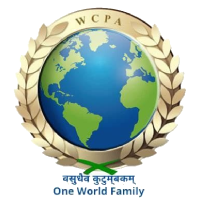WLA 49. Shipbreaking Code.
Provisional World Parliament 27th through 31st December 2010, Rabindranath Tagore Auditorium, Bangla Academy, and Sri Aurobindo Bhavan, Calcutta, West Bengal, India
The Shipbreaking Code
Aware, that despite over 10 years of international work on this matter at the UN level, almost no improvement has been noted on the ground and some of the world’s most impoverished work forces continue to face death and disease on a daily basis due to the international trade in End of Life Ships containing hazardous substances;
The World Parliament hears the call upon governments to implement an effective and enforceable mandatory regime, based on the Basel Convention and the existing Guidelines of IMO, UNEP and ILO.
The World Parliament hereby adopts this World Legislative Act, to implement immediate global solutions to the shipbreaking crisis.
- In cooperation with agencies of the Integrative Complex, the International Maritime Organization (IMO), the International Labor Organization (ILO) and the United Nations Environmental Programme (UNEP) shall draft proposal to the World Parliament for the respective responsibilities of all the actors involved in the process of shipping from the designer of the ship to the breaker. The proposal shall include universal civil and criminal penal provisions for appropriate respective provisions of the Basel Convention to meet UDHR Article 7, and Earth Constitution Article 12. requirement for equal protection and application of the law. The proposal as adopted by the World Parliament shall form the annexes of this Shipbreaking Code.
- Shipowners, exporting countries, legal and natural persons are responsible and held liable for the proper handling of hazardous and explosive materials on board of End of Life Ships. Civil and criminal provisions apply for non-compliance.
- The World Parliament establishes a Victims’ Fund fed by the shipowners, governments and the World Parliament via the World Financial Administration to support the improvement of working conditions at shipbreaking yards and to compensate the victims of accidents on the yards and victims’ families. The Fund accounts in Earth units of credit and currency. Until the World Financial Administration can better manage the fund, the Assembly of States Parties shall manage the Fund together as part of its Victims’ Fund. However, the Assembly of States Parties shall manage the Shipbreaking Victims Fund in separate appropriation section accounts from the General Victims Fund. The World Treasury of the Earth Federation shall compensate the World Court and the Assembly of States Parties for the additional fiscal and logistical burden of managing the separate appropriation section accounts.
The Criminal Bench shall determine Payments from the Fund based upon criminal cases. The Civil Bench shall determine payments from the Fund based on civil cases. The Public Bench shall determine awards from public cases. Until the Civil Bench and Public Bench are more definitively established, the Permanent Court of Arbitration in The Hague may determine payments from the Fund based upon civil or public cases. The International Labor Organization (ILO) may arrange arbitration hearings on an interim basis with offices in liaison to the benches of the World Court System. The ILO shall comply with the orders and Rules of the respective bench of the Court. The ILO, IMO and UNEP, working together, shall submit annual reports and budget proposals to the World Parliament requesting operating appropriations for implementing this provision. The benches of Court shall submit annual budget proposals and reports to include projected and incurred Court costs for implementing this Act.
- This Statute on shipbreaking upholds the Basel Convention standards. Shipowners, shipbreakers and governments shall provide the following: 7.1. Full transparency regarding the intent to dispose of the ship; 7.2. Full transparency for clean shipbuilding; 7.3. For mandatory substitution of hazardous substances; 7.4. For pre-cleaning of ships before they are sent to the yards; 7.5. For absolute transparency regarding the identity of ship owners at all times; and 7.6. For full transparency at any given time on all hazardous substances onboard ships.
- World Parliament directs OECD member States to encourage the development of ship pre-cleaning technology and infrastructure.
- The World Parliament directs the International Maritime Organization (IMO), the International Labor Organization (ILO), the United Nations Environment Programme (UNEP), the Basel Convention Secretariat and the original signatories to the Joint Declaration on Implementing Urgent Global Solutions to the Shipbreaking Crisis to work together and to submit proposals to the World Parliament for universal civil and criminal penal provisions for each appropriate respective provision of the Basel Convention to meet UDHR Article 7, and Earth Constitution Article 12 requirement for equal protection and application of the law. National States shall enact co-operative law enforcement legislation over sub-jurisdictional national penal provisions, since sub-jurisdictional penal provisions for global jurisdictional affairs conflict with UDHR and the World Court System.
- World Parliament directs the parties and the members of the Basel Convention and the Joint Working Group of ILO, IMO, UNEP and the Basel Convention to immediately start enforcement of the existing instruments, such as the Basel Convention and the ILO Guidelines, to save human life and to protect the environment.
- The World Financial Administration may earmark funds from the Nuclear Power Plant Decommission Fund to pay for decommission of nuclear power systems on vessels.
- Intentional beaching as a method for shipbreaking is a world class 3 felony.
- The World Parliament will revisit this Act as soon as feasible to update and further specify regulations.
bill adapted and prepared December 9th, 2005
Original declaration was posted at
http://www.greenpeace.org/international/press/reports/sb-declaration
World Parliament fax: 1-540-831-5919; govt_rules@yahoo.com
http://www.wcpa.biz ,
http://www.worldproblems.net http://www.radford.edu/~gmartin;
The original Shipbreaking Code proposal, before adaptation to world legislative drafting guidelines, was signed by the following organizations:
- International Federation for Human Rights (FIDH)
- Greenpeace International
- Young Power in Social Action (YPSA, Bangladesh)
- International Ban Asbestos Secretariat (IBAS)
- International & Virtual Ban Asbestos Network
- Union of Harbour, Dock Shipbuilding-Repair Workers (DISK Limter Is, Turkey)
- International & Virtual Ban Asbestos Network for Latin America
- Ban Asbestos France
- Basel Action Network (BAN, USA)
- Corporate Accountability Desk, India
- Ban Asbestos Network Japan (BANJAN)
- Asbestos Ex-exposed Brazilian People Association (Associação brasileira dos ex-espostos ao amianto)
- Japan Occupational Safety and Health Resource Center (JOSHRC)
- Centre of Indian Trade Unions (CITU)
- Ban Asbestos India
- European NGO Platform on Shipbreaking (North Sea Foundation, European Federation for Transport and Environment, Greenpeace, Keep it Blue, Bellona)
- Odhikar (a Bengali word meaning “rights”, is a human rights organisation in Bangladesh and a member organisation of FIDH)
- UBINIG (Bengali name Unnayan Bikalper Nitinirdharoni Gobeshona in English: Policy Research for Development Alternatives; a policy advocacy and research organisation in Bangladesh)
Adopted as amended, 4:10 p.m., 27 December 2010, by the 12th Session of the Provisional World Parliament.
Attested,
Eugenia Almand, JD, Parliament Secretary

